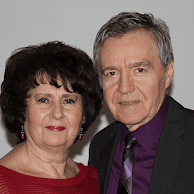Who are the heroes? Part III More YU heroes
We moved to Vienna, Austria to teach as a part of the Eastern European Bible Institute in January 1991. EEBI was a theological college for training students from Yugoslavia.
While we were in Vienna the Bosnian war started. We decided in August of 1992 to return to Serbia, but decided to return to Novi Sad, which was the capital of Vojvodina, the northern region of Serbia.
We were hosted by the Christian Evangelistic Centre in Backi Petrovac. The CEC’s director, Dr. Ondrej Franka, extended us a visa to live and work in Serbia at that time.
Ondrej and people from the Centre helped to bring humanitarian aid to the “refugees” (Internally Displaced People, IDPs) who were flooding into Serbia from Bosnia and Croatia. Ondrej as an ethnic Slovak and a Baptist had no stake in the war. His only concern and the concern of his team was to help these refugees to have enough to eat and enough clothing to deal with the winter.
Once I took a trip with Ondrej and his team to a resort hotel in some mountains near Novi Sad to give aid to refugees. The refugees were allowed to live in the hotel, until other housing could be arranged.
There I met a Serbian teenager of about 14. He had watched as Bosnian fighters killed all of his family members in front of him when he was only 12 years old. He was left to die. Serbian fighters found him and he fought alongside them for two years until they told him to go to Novi Sad and go to high school. He had done enough fighting. Can you image how this would scar a person for life? How can one hear such stories and not feel compassion?
Many of our students from EEBI had been from the ethnically Slovak community. They were usually either of the Baptist or Brethren denomination. Many were opposed to violence and held a Christian non-violence position. Some of our former students had served two years in the Yugoslav Army (which was required of all young men) rather than one year because they would not bear arms.
For this reason Slovaks were not seen as a threat to anyone in the conflict. They worked tirelessly to help the refugees, mostly Serbs get food and clothing.
Danny & Vera Kuranji
We also worked with another couple who were of Slovak and Czech ethnicity. Danny and Vera were church planters who had returned from Canada to Novi Sad to plant a church. They had seen hundreds of refugee teens become Christians. Linda and I came alongside them for two years to help disciple their new converts by teaching Bible and theological courses.
A couple from the hills near Sarajevo are an example of the people Danny and Vera reached. They had just finished building their new home when they were warned that there would be shelling in their village. They fled and watched from a neighboring hill as their new home was destroyed.
When they reached Vojvodina the husband met an older man of Croatian ethnicity. Hearing the couple’s story he offered them a mud wall house in a village across the Danube river from Novi Sad. It had no indoor plumbing or water. It had no central heating, but they could have it rent free.
Imagine how you would feel if you lost your newly built home in just a matter of minutes. Only those how have experienced the devastation of a flood or hurricane can.
There are now hundreds of thousands of Syrian refugees who have watched their homes and neighborhoods destroyed. Their stories are heart breaking. We must be moved by compassion for these most unfortunate.



Comments
Post a Comment